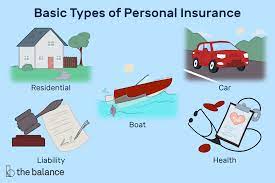There are several types of health-related loans and financing options available in the United States to help individuals cover medical expenses. It’s important to note that the availability and terms of these loans can vary depending on the lender and your individual financial circumstances. Some common health loan options include:
Medical Credit Cards: These are credit cards specifically designed for medical expenses. They often come with promotional periods during which you can pay off your medical bills with no or low interest. Popular medical credit card companies include CareCredit and Wells Fargo Health Advantage.
 Personal Loans: You can apply for a personal loan from a bank, credit union, or online lender to cover medical costs. Personal loans typically have fixed interest rates and repayment terms.
Personal Loans: You can apply for a personal loan from a bank, credit union, or online lender to cover medical costs. Personal loans typically have fixed interest rates and repayment terms.Healthcare-specific Loans: Some lenders specialize in healthcare financing and offer loans for medical procedures such as elective surgeries or dental work.
Home Equity Loans or Lines of Credit: If you own a home, you may be able to tap into your home’s equity through a home equity loan or line of credit to pay for medical expenses. These loans typically have lower interest rates than credit cards.

Health Savings Account (HSA) or Flexible Spending Account (FSA) Loans: If you have an HSA or FSA, you can borrow against the funds in these accounts to cover eligible medical expenses. Be aware of the tax implications and repayment terms.
Medical Bill Payment Plans: Many healthcare providers offer their own financing plans or payment options for patients who cannot afford to pay their medical bills upfront.
Crowdfunding: Some people turn to crowdfunding platforms like GoFundMe or YouCaring to raise money for medical expenses. This involves asking friends, family, and strangers for financial assistance.
Charitable Organizations: Some charitable organizations and nonprofits offer financial assistance or grants to individuals facing significant medical expenses. You can research local and national organizations that may be able to help.

Government Assistance Programs: Depending on your income and circumstances, you may qualify for government assistance programs like Medicaid or Medicare, which can help cover medical costs.
Please note that the availability of these options may have changed since my last update in September 2021. Additionally, the terms and conditions of these loans can vary widely, so it’s important to carefully review the terms, interest rates, and fees associated with any loan or financing option you consider. It’s also a good idea to consult with a financial advisor or healthcare provider to explore the best financing solution for your specific needs.
Determine Your Medical Expenses: First, you should have a clear understanding of the medical expenses you need to cover. This could include bills for medical procedures, surgeries, hospital stays, prescription medications, or other healthcare-related costs.
Research Lenders and Financing Options: 
Check Your Credit Score: Lenders typically consider your credit history and credit score when evaluating your loan application. Check your credit report for accuracy and take steps to improve your credit score if necessary.
Gather Financial Documents:
 Most lenders will require you to provide financial documentation when you apply for a loan. This may include pay stubs, bank statements, tax returns, and proof of income.
Most lenders will require you to provide financial documentation when you apply for a loan. This may include pay stubs, bank statements, tax returns, and proof of income.Complete the Application: Fill out the loan application provided by the lender of your choice. Be prepared to provide personal information, employment details, and information about your medical expenses.
Submit the Application: Submit your loan application to the lender. This can often be done online through the lender’s website, in-person at a bank or credit union branch, or over the phone.

Wait for Approval: The lender will review your application and assess your creditworthiness. The approval process may take some time, depending on the lender and the type of loan you’re applying for.
Review Loan Terms: If you are approved, carefully review the loan terms and conditions, including the interest rate, repayment schedule, and any fees associated with the loan. Make sure you understand all the terms before accepting the loan.

Accept the Loan: Once you’re comfortable with the terms, you can accept the loan offer from the lender. This may involve signing a loan agreement.
Use the Funds: After you’ve accepted the loan, the funds will typically be disbursed to you or directly to the healthcare provider to cover your medical expenses.
Repay the Loan: Make regular, on-time payments according to the loan agreement. This may involve monthly payments over a specified period.

Monitor Your Finances: Keep track of your loan payments and manage your finances to ensure you can make timely payments and avoid any late fees or penalties.
It’s important to remember that the specific application process can vary depending on the lender and the type of loan you choose. Some loans, such as medical credit cards, may offer faster approval and require less documentation, while personal loans from traditional lenders may involve a more rigorous application process.

Before applying for any loan, it’s advisable to read the fine print, understand the interest rates and fees, and consider the impact of the loan on your overall financial situation. Additionally, if you have any questions or concerns during the application process, don’t hesitate to reach out to the lender for clarification.

